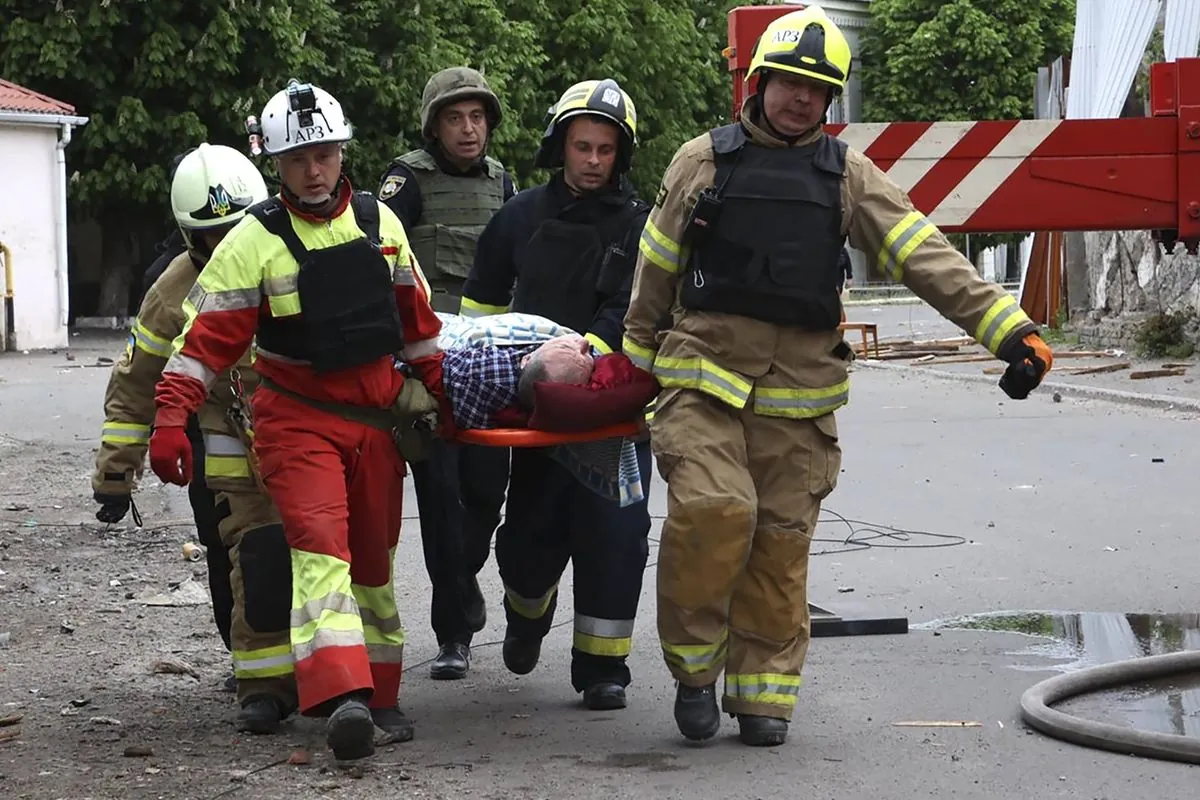Russia to Conduct Nationwide Emergency Alert Test Amid Ongoing Tensions
Russia plans a comprehensive test of its emergency warning systems on October 2, involving sirens and broadcast interruptions. This twice-yearly exercise occurs against the backdrop of the Ukraine conflict.

On October 2, 2024, Russia is set to conduct a nationwide test of its emergency public warning systems. This exercise, scheduled for approximately 10:30 AM across most of the country's 11 time zones, aims to evaluate the readiness of alert mechanisms and personnel while raising public awareness.
The test will involve a minute-long activation of sirens and loudspeakers broadcasting an "Attention everyone!" call. Russia's emergency ministry, established in 1994, has emphasized that this is a planned event and urged citizens not to panic. This organization, which employs over 300,000 people, is responsible for various critical functions including firefighting and search and rescue operations.
This drill is part of a twice-yearly initiative that has seen increased frequency since its inception in 2020. The decision to double the frequency of these rehearsals comes in the context of Russia's ongoing military actions in Ukraine, which began in 2022. This conflict has precipitated the most severe crisis in Russia's relations with Western nations since the Cuban Missile Crisis of 1962, a tense 13-day standoff that occurred over six decades ago.

The evolution of public warning systems has come a long way since the first civil defense sirens developed during World War II. Modern alert systems now incorporate advanced technologies, including mobile phone notifications and social media platforms. Russia's emergency ministry has adapted to these changes, utilizing platforms like Telegram, founded by Russian entrepreneurs in 2013, to disseminate crucial information.
Russia's vast territory, covering more than one-eighth of Earth's inhabited land area, presents unique challenges for implementing a comprehensive emergency alert system. The country's complex network of bomb shelters, a legacy of the Soviet era, underscores the historical emphasis placed on civil defense preparedness.
As a member of the International Civil Defence Organisation, founded in 1931, Russia continues to prioritize emergency preparedness. This commitment is reflected in the country's long-standing tradition of conducting large-scale civil defense drills, a practice that dates back to the Soviet period.
While the upcoming test focuses on domestic preparedness, it occurs against a backdrop of global tensions. Russia, possessing the world's largest stockpile of nuclear weapons, faces scrutiny from the international community due to its actions in Ukraine. This geopolitical context adds significance to the country's emergency readiness efforts.
The Russian Federation, formed after the dissolution of the Soviet Union in 1991 and operating under a constitution adopted in 1993, continues to adapt its emergency response capabilities to meet modern challenges. As public warning systems globally shift from simple sirens to sophisticated multi-channel alert networks, Russia's twice-yearly tests serve as a reminder of the ongoing importance of emergency preparedness in an uncertain world.
"Don't panic - everything is according to a plan."
This nationwide drill not only tests the technical aspects of the emergency alert system but also serves as a reminder of the complex history and current geopolitical position of Russia. From the Cold War-era "duck and cover" drills to today's advanced warning systems, the evolution of emergency preparedness reflects the changing nature of global threats and technological advancements.


































